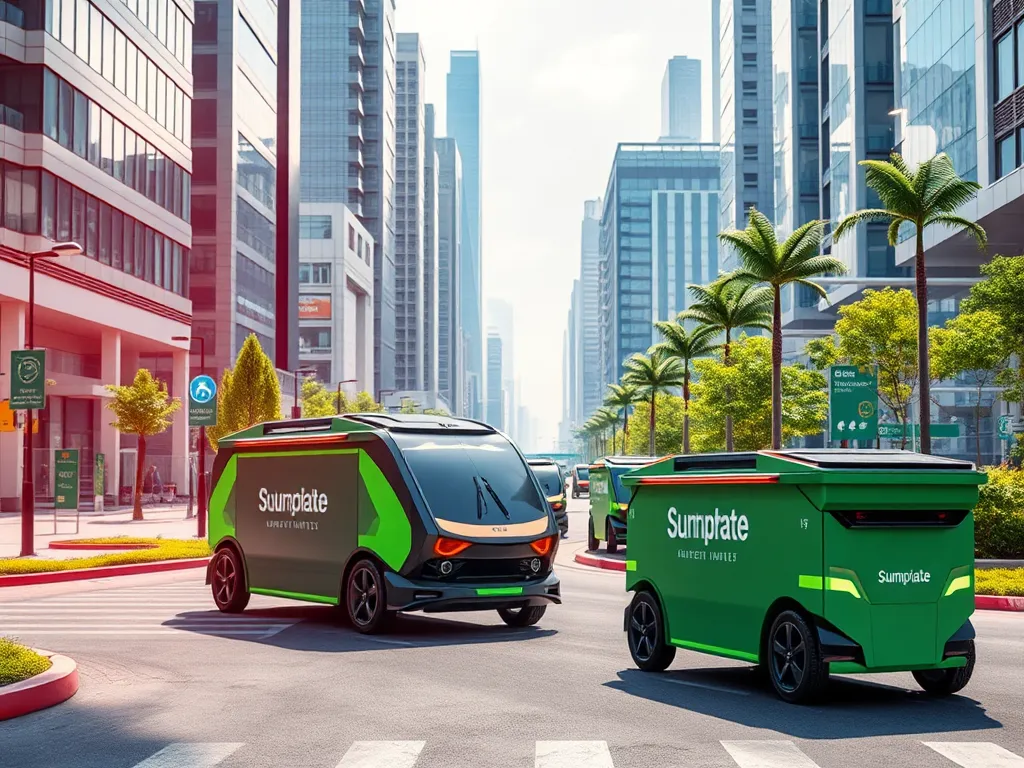Exploring Innovations in Dumpster Rental and Waste Removal Technology

Innovations in Dumpster Rental and Waste Removal Technology
Innovations in dumpster rental and waste removal technology have seen significant advancement in recent years, driven largely by the ever-increasing need for efficient waste management solutions. As urban environments continue to grow and evolve, the demand for innovative approaches to waste disposal is more critical than ever. This transformation is not only focused on improving efficiency but also on enhancing sustainability and reducing the environmental impact of waste management practices.
Among the most impactful changes in this field are the integration of smart technologies into dumpster rental services. These innovations facilitate better monitoring, scheduling, and data-driven decision-making, allowing companies to optimize their operations. Such technological advancements aim at improving customer satisfaction and operational efficiency, ultimately leading to an overall reduction in waste for both residential and commercial sectors.
Eco-friendly initiatives also play a crucial role in reshaping dumpster rental and waste removal services. The drive towards sustainability has encouraged the use of biodegradable materials in waste management, innovative recycling solutions, and energy-from-waste technologies. Consequently, these measures are paving the way for a greener future, significantly reducing the carbon footprint associated with waste removal processes.
Mobile applications are another significant innovation in waste management, allowing users to easily book dumpster rental services, receive real-time updates, and track their waste disposal activities. This convenience promotes responsible waste management amongst consumers and encourages the integration of local recycling guidelines, thereby improving overall community participation in sustainable practices.
Lastly, automation and robotics are redefining the waste removal sector. From robotic arms capable of sorting garbage efficiently, to automated pickup systems and drones, these advancements are streamlining operations and enhancing waste collection efficiency. Such innovations not only speed up processes but also mitigate human error, resulting in a more reliable waste management ecosystem.
Smart Dumpster Solutions
One of the key components of innovations in dumpster rental and waste removal technology includes the implementation of IoT sensors in dumpsters. These sensors monitor fill levels in real time, ensuring that waste containers are emptied only when necessary. This technology prevents overflows and reduces the number of unnecessary pickups, leading to cost savings and more efficient route management.
Remote scheduling and booking systems have also transformed the dumpster rental experience. Customers can now schedule pickups and deliveries online or via mobile apps without the need for phone calls or in-person meetings. This innovation simplifies the rental process and empowers consumers to select the services that best meet their needs.
Real-time tracking for waste collection trucks is another significant advancement in the industry. With GPS technology, companies can monitor the location of their trucks in real time, allowing for better route optimization and timely responses to service requests. This transparency not only enhances customer experience but also improves operational efficiency.
For comprehensive support and resources, visit http://brighterdayservices.org/index-966.html to explore our services.
Data analytics plays a vital role in waste management optimization as well. By analyzing patterns in waste generation and disposal, companies can develop more tailored services, anticipate demand fluctuations, and enhance their overall waste management strategies. Such informed decision-making ultimately leads to better resource allocation and sustainability efforts.
Eco-Friendly Waste Removal Technologies
In recent years, biodegradable materials and alternatives have gained traction in waste management. Companies are focusing on using environmentally-safe solutions and promoting customer education on responsible waste disposal. This shift not only minimizes landfill contributions but also enhances public awareness regarding sustainability in waste management.
Innovations in waste sorting technology have led to significant advancements in recycling processes. Advanced machines that leverage AI and machine learning are now capable of accurately sorting through waste to separate recyclable materials from non-recyclables, increasing the efficiency and effectiveness of recycling efforts.
Energy-from-waste technologies are revolutionizing the way we conceptualize waste. By converting waste materials into energy, these practices reduce reliance on fossil fuels and minimize landfill waste. This eco-friendly approach encompasses various technologies, such as anaerobic digestion and incineration, which effectively harness waste to generate renewable energy.
Sustainable fleet management practices have emerged as crucial innovations in the waste removal industry. By transitioning to electric or hybrid vehicles, companies can significantly reduce greenhouse gas emissions. Furthermore, investing in route optimization software minimizes fuel consumption and enhances the overall efficiency of waste collection services.
Mobile Apps in Waste Management
Mobile applications have become user-friendly platforms that streamline the booking of waste management services. With intuitive designs and simplified interfaces, consumers can effortlessly schedule dumpster rentals, check availability, and make payments—all from their smartphones.
Real-time notifications for waste collection keep customers informed about when their pickups are scheduled. Such timely communication fosters transparency and ensures that users can effectively manage their waste without experiencing delays or confusions in service.
Tracking waste disposal history through mobile apps offers users the opportunity to monitor how much waste they produce over time. This feature promotes accountability and encourages eco-conscious behaviors, highlighting opportunities for waste reduction and recycling.
Integration with local recycling guidelines allows these platforms to provide personalized recommendations on how to dispose of specific materials. By empowering users with the necessary knowledge, mobile apps enhance community participation in responsible waste management practices.
Automation and Robotics in Waste Removal
Robotic arms for garbage sorting have emerged as valuable innovations in the waste removal sector. These machines can quickly and accurately identify and separate recyclable materials from mixed waste, significantly reducing human labor costs and improving overall efficiency.
Automated pickup systems have revolutionized the way waste is collected. These systems can work independently or in conjunction with human operators, minimizing the risk of injury and streamlining operations. The adoption of autonomous vehicles for waste collection is already reshaping the industry landscape.
The impact of artificial intelligence on waste collection efficiency cannot be overstated. AI-driven tools analyze vast amounts of data from waste generation patterns, allowing for smarter route planning and predictive analytics, resulting in cost-effective operations and improved service delivery.
Drone technology for remote area waste assessment offers innovative solutions for waste management in hard-to-reach places. Drones equipped with advanced imaging technology can provide valuable insights into waste levels and assist in monitoring large areas, enabling more effective waste collection strategies.
Trends in Commercial Dumpster Rental
There is an increasing trend towards customization of dumpster sizes for businesses. Catering to diverse waste generation needs, service providers offer a variety of sizes to accommodate small renovations to major industrial projects, ensuring that every client receives the appropriate dumpster for their requirements.
Subscription models for regular waste removal have gained popularity, especially among businesses with consistent waste management needs. These agreements provide cost predictability and ensure timely service, allowing businesses to maintain cleanliness and compliance with local regulations.
Trends in waste generation are evolving across different industries, highlighting the importance of tailored waste management solutions. Companies are now focusing on sector-specific strategies to effectively handle varied waste materials and comply with regulations, thereby driving innovation in dumpster rental services.
Lastly, the impact of regulations on commercial waste management cannot be ignored. New policies mandating recycling and waste reduction are reshaping the landscape for commercial dumpster rental services, pushing businesses to adopt innovative practices and invest in sustainable waste management strategies.
